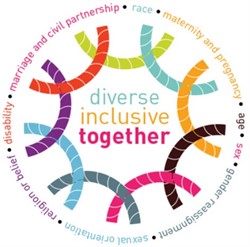More information is available on the visiting page
Equality performance
Monitoring Data
A key priority, in line with our public sector duty, is to collect and publish data that can help us work together to improve our employment practices and services for all communities (Ethnicity, Age, Gender, Sexual Orientation, Religion & Belief, Disability, Marriage and Civil Partnership, Gender Re-assignment, Pregnancy and Maternity).
Gender Pay Gap
If you require Gender Pay Gap data for previous years that is not available on this website page please contact our communications team
Workforce Race Equality Standard (WRES)
From 1 April 2015, all NHS organisations are required to demonstrate through the nine point Workforce Race Equality Standard (WRES) metric how they are addressing race equality issues in a range of staffing areas and develop an action plan to address any identified shortfalls, for review and monitoring through the Equality & Diversity Committee.
Workforce Disability Equality Standard (WDES)
The Workforce Disability Equality Standard (WDES) is mandated for all NHS Trusts and Foundation Trusts from April 2019. The WDES is based on a series of measures linked to the experience of disabled staff in the NHS. It comprises of ten metrics which are all drawn from existing data sources (recruitment dataset, ESR, NHS Staff Survey, HR data) with the 6 exception of one; metric 9b which asks for narrative evidence of actions taken, to be written into the WDES annual report.
Workforce Disability Equality Standard: 2022 data analysis report.
Equality Delivery System
The EDS is an improvement tool for patients, staff and leaders of the NHS. It supports NHS organisations in England - in active conversations with patients, public, staff, staff networks, community groups and trade unions - to review and develop their approach in addressing health inequalities through three domains: Services, Workforce and Leadership. It is driven by data, evidence, engagement and insight. You can view our EDS action plan on our equality home page.

Please contact:
- Patients, service users, members of the public, please contact our patient experience team on 372986 Monday to Friday if you require more information.
- Workforce - Equality, Diversity and Human Rights - contact by email ED&I@wvt.nhs.uk

